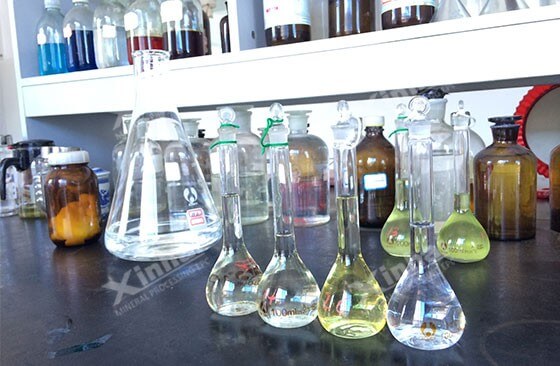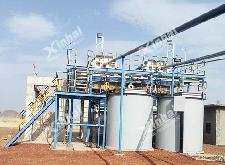

Warm Tip: If you want to know more details about equipment, solutions, etc, please click the button below for free consultation, or leave your requirements!
In this post, we are talking about mineral processing experiment.
We are going to cover 5 stages of ore dressing test.
Study on the properties of raw ore
Crushing and grinding technology flow test research
Processing method and flow experiment research
Experimental study on product dewatering
Environment protection experimental research
Let's have a close look!

Mineral processing experiment is an important component of mineral processing EPC service, which is also the important technology basis of mineral processing plant construction and production.
Mini-flow test in laboratory is the basic experiment of mineral processing experiment. Ordinary mineral processing experiment begins with mini-flow tests, and then scaling up. the contents of every test stage is depending on experiment purposes.
The study on the properties of raw ore mainly includes:
spectral analysis;
multi-element analysis or full analysis;
assay analysis, microscopic identification;
phase analysis;
grading analysis;
heavy liquid separation;
determination of physical and mechanical properties of ores;
other necessary analysis research contents.
Crushing and grinding technology flow test research mainly includes:
work index test;
grindability test;
abrasion index test;
self-grinding medium performance test;
washing and washing overflow treatment test;
ore preconcentration test study;
grinding method and grinding process test study;
grinding mineral analysis.
This part mainly includes the research of mineral processing method, mineral processing condition test and mineral flow structure test research, recommending process flow and analysis of mineral processing products.
Among these researches, mineral processing condition test includes:
flotation;
magnetic separation;
roasting magnetic separation;
heavy medium dressing;
electric separation;
photoelectric selection;
beneficiation reagent;
fuel;
medium and other main materials for contrast test.
The research of dressing process structure test mainly includes:
Make sure the stage number.
Discuss times of scavenging separation and concentrate separation, trying to increase the recovery rate and concentration of concentrates.
Identify the characteristic of the middle ores, and determine the reasonable location of the return of middle ore and separate treatment scheme.
On the basis of sufficient unit condition test, the comprehensive condition test of open circuit flow should be carried out.
On the basis of open circuit flow test, close circuit flow test is carried out.
Recommending process flow:
Multi-scheme tests were carried out on ore dressing methods, technological processes and separation conditions, and recommending mineral processing flow on the basis of comparative test of 1-2 schemes.
The analysis of mineral processing products:
Chemical analysis, particle size analysis, phase analysis, and mechanical and physical properties determination should be carried out for concentrate, middling and tailing products.
Sedimentation velocity test is done for concentrate and tailings, and settlement velocity curve is drawn.
The tailings water, concentrate water and other sewage, harmful gas and waste residue in the technological process are analyzed to reach the national sewage discharge standard. At the same time, the beneficiation agents should try to use agents that are harmless to humans or have little pollution to agriculture, forestry, animal husbandry, fishing, and the environment.
Therefore, it is suggested that while relying on experience judgment, we should recognize the scientific nature and necessity of the experiment, which will have a significant positive effect on avoiding technical risks, reducing operating costs and increasing profits.
14 Types of Mineral Processing Test
 0
0
 4149
4149
2What Does Mineral Processing Experiment Mainly Include?
 6
6
 3933
3933
3Ore Sampling You Need to Know
 0
0
 3970
3970


What Are the Differences Between CIP and CIL?
 12061
12061
 0
0